Studio for a Composer by Johnsen Schmaling Architects
This rusted steel cabin in Wisconsin woodland is a practice studio for a musician designed by Milwaukee office Johnsen Schmaling Architects.
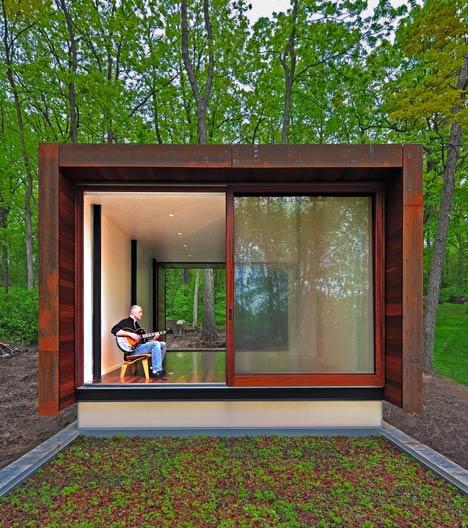
The client, a country and western composer, asked Johnsen Schmaling Architects for "a space that allows him to think and create," including a small rehearsal room and an area for storage.
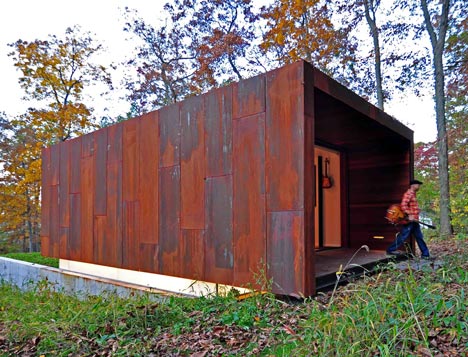
To create the outer shell of the structure, the architects used pre-weathered steel covered with traces of oil stains, alloy imperfections and roller marks.
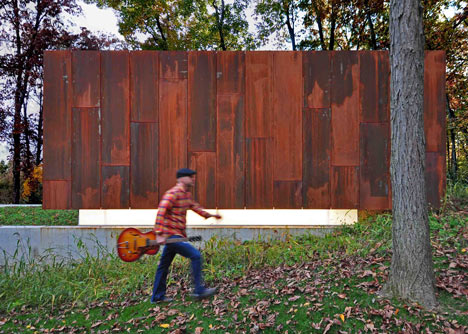
"The carefully detailed steel envelope, its warm colour of ferrous corrosion echoing the hues of the derelict machinery left behind in the area's abandoned farm fields, turns the building skin into an ever-changing canvas," they explain.
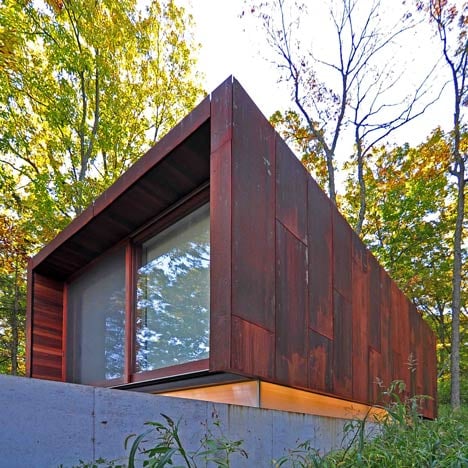
The lower half of the two-storey structure is a small concrete podium, partially buried beneath the sloping ground. A line of clerestory windows skirts the upper edge of the concrete, emphasising the separation between the top-floor studio and the storage room below.
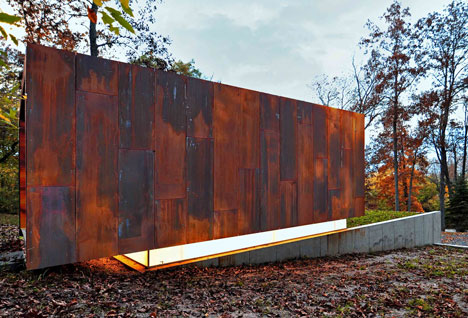
Both ends of the rehearsal room are glazed and can be opened up to allow cross ventilation. One side opens out to a sheltered deck, while the other leads onto the mossy roof of the floor below.
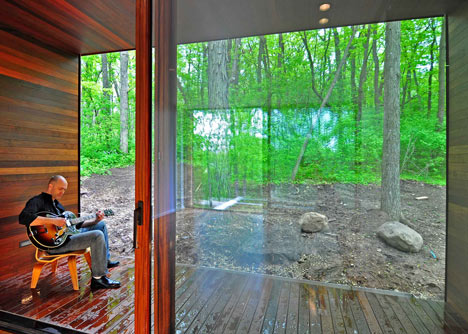
To soundproof the building the architects added a sandwiched layer of plasterboard and sound-absorbent adhesive within the walls, while a high-density foam insulation fills the cavities.
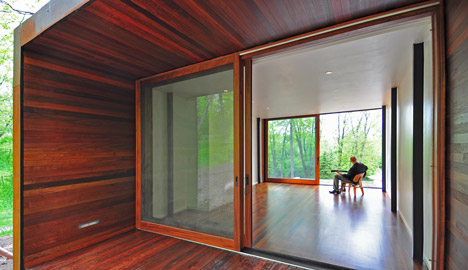
Other rural projects we've featured on Dezeen include a wooden folly that cantilevers across a lake and a concrete pavilion in a Texan park.
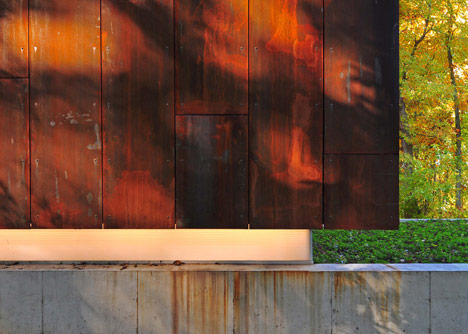
Photography is by John J. Macaulay.
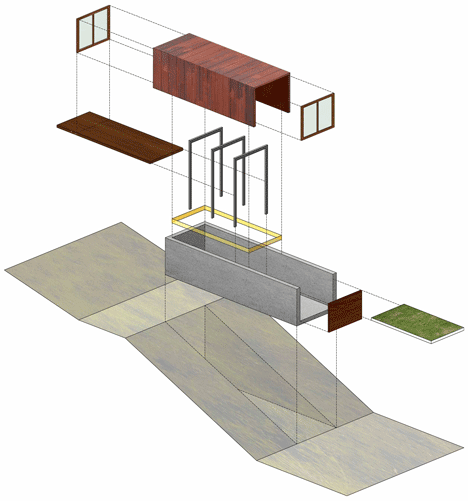
Above: exploded 3D diagram
Here's some more information from the architects:
Studio for a Composer by Johnsen Schmaling Architects
An unassuming structure embedded in Wisconsin's rural landscape, this intimate retreat serves as a studio for a Country Western musician to write and record his music. With its formal discipline, exacting details, and a carefully restrained material palette, the building, while unapologetically contemporary, continues the tradition of Midwestern pastoral architecture and its proud legacy of aesthetic sobriety, functional lucidity and robust craftsmanship.
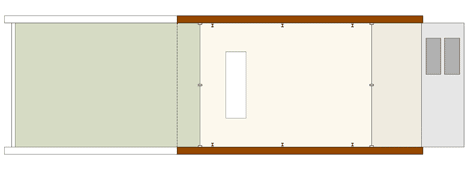
Above: floor plan
A concrete podium, carved into a steep hill to provide storage space, supports a simple linear volume for the studio space, its long sides covered by a weathering steel shroud. Oversized glazed openings at each end of the studio provide access into the space and out onto the vegetated roof of the storage plinth, carefully framing views of the picturesque surroundings. The steel shroud cantilevers over the edge of the studio volume to create a covered porch, a sheltered outdoor extension of the interior studio space. Along its edges, the shroud is slightly lifted off the concrete plinth, teasingly exposing a narrow, diaphanous clerestory that allows the studio volume to seemingly float above its base. During the day, the clerestory provides natural light for the storage space below; at night, it emits its soft, ominous glow into the dark landscape.
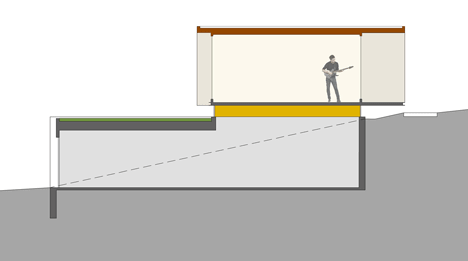
Above: long section
The building materials – exposed concrete and steel, glass, and wood – were locally sourced and chosen for their ability to age gracefully over time. The carefully detailed steel envelope, its warm colour of ferrous corrosion echoing the hues of the derelict machinery left behind in the area's abandoned farm fields, turns the building skin into an ever-changing canvas. Alloy imperfections, surface oils, and roller marks from the steel mill all leave their individual traces as the material weathers, juxtaposing the building's strict geometry and formal restraint with a stubbornly unpredictable veneer.
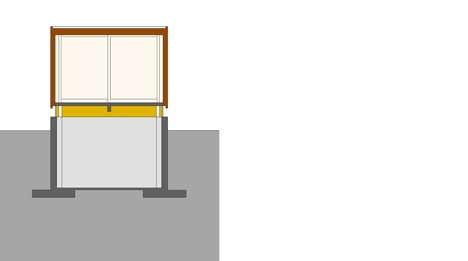
Above: cross section